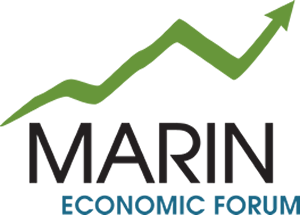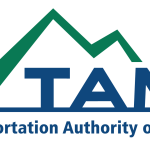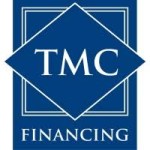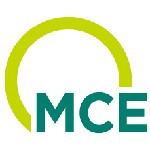Marin Economic Forum: Virus impact on business could worsen
The tailspin that the coronavirus has sent the local economy into might continue for a while, according to the Marin Economic Forum.
“It’s a sobering thought, but we may not have hit the bottom yet,” Mike Blakeley, the organization’s chief executive, said Thursday during a briefing on the local outlook. “The question we’re asking right now is whether Marin County is in economic recovery or not.”
Also participating in the webinar on Zoom was Robert Eyler, the forum’s chief economist. He said job losses due to the pandemic have been smaller than during the Great Recession. Marin’s unemployment rate in August stood at 7%.
“That is because a lot of the job loss so far has been due to temporary layoffs, not permanent job loss,” Eyler said.
He said if that changes over fall and winter, Marin’s economic prospects could take another dive.
Eyler said two big unknowns at the moment is how the American consumer will react to the outcome of the presidential election in November and the likely possibility of increased coronavirus infections in coming months.
“We’re starting to see some closures in major European cities; Madrid is back in basic shutdown mode,” Eyler said. “Is that a harbinger of what we might be facing here in the fall and winter? We will see.”
Blakeley said, “Consumers are still feeling out how comfortable they are returning to their consumption patterns. Demand is going to be the key determinant of the recovery here.”
Blakeley said the pandemic’s effect on the Marin economy has turned normal expectations upside down. Typically, California fares better than the rest of the nation during recessions, and Marin outperforms the state average. During the pandemic, the reverse has been true.
For example, the national unemployment rate in August was 8.4% while California’s rate was 11.4%. Utah’s unemployment in August was 4.1%.
Eyler said, “That is because California has some relative exposure in risky industries: tourism and personal services that require proximity.”
According to an analysis by Harvard University, there has been a 49% drop in the number of small businesses open in the Bay Area since the start of the pandemic.
“That is more than twice the national median,” Blakeley said. “Our small businesses in the Bay Area are being impacted significantly worse than the rest of the United States.”
Blakeley said job losses in Marin have been greater than the state average because the county’s economy relies heavily on small businesses, many which operate in the personal services sector. He said Marin restaurants, gyms and nail salons, for example, have been severely impacted by shelter in place rules.
“Those types of businesses may not come back to what they once were as a result of COVID-19,” he said.
Blakeley said the pandemic has also increased pressure on retail businesses that were threatened by online competitors before the outbreak.
“The retail sector of Marin may not come back to what it was pre-pandemic as well,” he said.
Keep Marin Working, a collection of chambers of commerce, nonprofits and other business leaders in the county, including the Marin Economic Forum, has come up with a 10-point plan to help Marin prepare for a “new normal,” post-pandemic economy.
Its first recommendation is that the county should create a long-term economic development strategy that reflects the new realities of 2020. Its second recommendation is that the county should diversify its economy, seeking higher paying job opportunities in technology and other sectors.
The plan calls on local governments to hit the pause button on existing fees, mandates, regulations and other costs to businesses, and to expedite permitting. The plan suggests that an effort should be made to keep and foster the growth of employers in Marin.
The plan calls for investments in infrastructure such as solar grids and a countywide broadband system. It states that it is essential that the county begin to break down the barriers to create more housing at all levels of income.
The plan recommends giving preference to local vendors, noting that the pandemic demonstrated the importance of having a local supply chain. And the plan calls for strengthening workforce development in underserved communities and increasing access to child care.
Blakeley said the plan has been presented to county and city officials, who are in the process of formulating a response.
Be the first to receive updates and news from MEF by subscribing or liking us on our social media pages: Facebook, Twitter, and LinkedIn!














